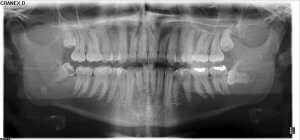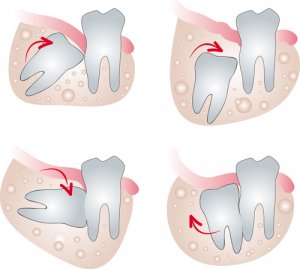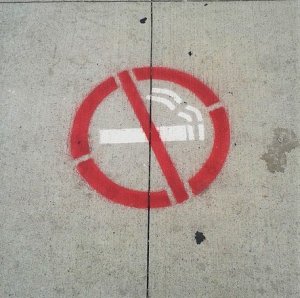Do you suffer from wisdom teeth problems? Despite being a common issue, they often remain a mystery to many. Without adequate knowledge, it can be challenging to identify when these teeth cause dental problems.
In this article, we’ll provide answers to all your queries about wisdom teeth pain and removal, as well as explore why we have them in the first place. These teeth are frequently removed due to the dental issues they can cause, including impacted teeth, decay, infections, gum pain, ear pain, and dry sockets after extraction.
If you have concerns about any of these issues, keep reading for more information. We’ll start by addressing some commonly asked questions before delving into the causes of wisdom tooth pain and reasons for their removal, including what’s normal and what’s not.
Wisdom teeth problems

Pain from teeth coming through
The pain of a new tooth pushing through your gums is nothing to be concerned about in itself. Perhaps you’ve forgotten what it was like when the rest of your adult teeth came in.
Signs of wisdom teeth growing include:
- Gum swelling
- Mild pain in the area
- A feeling of pressure
- Dull jaw pain
- Ear pain
It can be hard to tell whether the symptoms you’re experiencing are caused by a healthy tooth coming in, a rotten wisdom tooth or an underlying problem like impaction.
Generally speaking, intense oral pain is a cause for concern while pain from tooth eruption will be milder. If you’re worried, speak to your dentist.
Pain from infection
One argument for the removal of third molars as standard is the high occurrence of rotten wisdom teeth. Because these teeth are located so far back, it’s difficult to clean them properly which can cause an increased risk of tooth decay.
Even people who maintain excellent oral health may have problems keeping their rear teeth clean. It’s particularly common for dental caries to develop between the second and third molar, and if untreated this can lead to more serious tooth infection.

Infection may also occur in teeth which have not yet erupted, especially if they are impacted.
Pain from an impacted wisdom tooth
The most common problem that occurs with third molars is impaction. This occurs when, usually due to lack of space, a tooth can’t move into its proper position and ends up aligned diagonally or even horizontally. It presses against the next tooth and, if left long enough, may cause other teeth to shift position or even damage them.
Impaction can be either bony impaction or soft tissue “gum” impaction. In bony impaction, your wisdom tooth is still covered by both the bone and gum, while in soft tissue impaction, the wisdom tooth is covered only with the gum.
Fully impacted wisdom teeth are still completely covered by gum tissue and invisible in your mouth, whereas partially erupted teeth break through the gum but are unable to emerge fully. The partial eruption is more likely to lead to infection, gum disease or decay since there is an opening where bacteria can access the tooth.
Symptoms of an impacted wisdom tooth include:
- Pain at the back of the mouth
- Jaw pain or stiffness
- Gum pain or swelling
- Pain or sensitivity around a partially erupted tooth
- Headaches
An impacted tooth doesn’t always show symptoms or cause pain, though. Even if an x-ray shows that you have impacted teeth, if they aren’t bothering you your dentist may well decide to leave them be.

On the other hand, if your dentist is concerned by the position of your teeth he or she may recommend removal to prevent any complications from developing. You may also be referred to an oral surgeon for a second opinion.
One reason to remove impacted teeth sooner rather than later is that the older you get, the further your tooth roots develop and the denser the bone holding them in place becomes. Removal can therefore be more difficult and lead to a longer recovery if teeth are removed later in life.
When patients are experiencing pain from impacted wisdom teeth, removal is usually the best option.
Wisdom teeth pain relief
If you’re worried you may have an impacted or infected wisdom tooth, don’t ignore it. Even if the pain subsides by itself this doesn’t mean the infection has cleared up. You should still get things checked out by a dentist.
In the meantime, you might be wondering about the best thing for wisdom tooth pain relief. Our complete guide to wisdom tooth pain has more information about what causes wisdom teeth to hurt and what to do about it.
Common wisdom teeth questions answered
Why do we have wisdom teeth?
The general consensus is that our ancestors needed these teeth because the ancestral food was harder to chew. This wore away their teeth and the new set let them keep eating this tough diet for longer. They did, however, have larger jaws that made it easier to accommodate all those gnashers.
Another theory is that tooth loss would have been much more common in the past, and the extra teeth were needed to replace those that had fallen out. Nowadays we have advanced dentistry techniques, including root canal treatment and dental crowns, which can save damaged teeth.
Where do wisdom teeth appear?

These teeth are known as ‘third molars‘ in the medical world since they are the third set of molars to appear (or ‘erupt’). They are located behind your second molars.
If all goes well, they will end up extending the rows of teeth you already have.
How many wisdom teeth do we have?
Most people have four – one on the left and right of both the upper and lower jaw. However, it’s possible for some people to have fewer than this or none at all.
In some rare cases, a person can have five, six or more – a condition is known as hypodontia. This often results in a double set of extractions – ouch!
Find out more about how many teeth adults have.
Is something wrong if I have no wisdom teeth?
No, and it could in fact mean that you are more evolved. People born without their third molars can still eat perfectly well but don’t have the risk of complications that the rest of us suffer.
Your dentist will be able to do an x-ray usually, a panorama, to check whether you have no wisdom teeth at all, or they just haven’t made an appearance yet.
When do wisdom teeth come in?
Originally called “teeth of wisdom”, they get their name from the fact that they typically appear much later than the rest of our teeth. Your second molars erupt around age 12. The average age for an eruption of third molars is 17-25.
The idea is that by this age you are a little wiser, although many would argue this is not necessarily the case.
It’s quite possible for these teeth to stay hidden for decades and only erupt in a person’s 30s or 40s. Equally, they may never come through but also never cause any problems which require them to be extracted.

Do wisdom teeth hurt?
Even if your third molars have plenty of space to grow, it’s normal to experience some pain as they erupt. One of the most common symptoms of wisdom teeth coming through is pain from sore gums.
Do wisdom teeth have to be removed?
Until 1998, removing wisdom teeth was the default practice in UK dentistry. This changed after studies from the University of York and the Royal College of Physicians of Edinburgh showed that this was unnecessary.
The US and Australia are yet to adopt this stance and removal remains standard procedure. However, there is a growing amount of research to show that routine removal may be a waste of resources and could actually be putting the patient at risk of complications unnecessarily.
Some people naturally have enough space in their jaw and mouth to accommodate the extra teeth. They can remain in place and function normally for the lifetime of the patient.
Your wisdom teeth are usually the last teeth in your mouth to erupt. If you have healthy gums, and the wisdom teeth come in properly aligned, there is often no need to remove them. However, this is not what happens to most people.
It is necessary to remove wisdom teeth when:
- They grow in sideways, which can cause pressure against neighbouring teeth and shift them
- Only partially emerge, which can cause bacteria and infection
- Don’t erupt at all and sit below the gums
Having your wisdom teeth removed can help resolve all of these issues, especially when the procedure is done soon after the wisdom teeth show signs of erupting.
Dr Shane Porter, Premier Dentistry of Eagle
If you are experiencing any kind of tooth pain you should certainly see your dentist as complications will only worsen over time.
Does wisdom teeth removal hurt?
As with most extractions, dentists use a local anaesthetic to numb the area before proceeding. So although the process may be uncomfortable, it shouldn’t be painful. You’re likely to experience discomfort or swelling in the days following the extraction as your body recovers and adjusts.
Recovery might be painful if the extraction is complicated, but ibuprofen or paracetamol will usually be enough to suppress this pain. Your dentist will advise you on which medicines to take. There is more information below about managing discomfort and pain after tooth extraction.
Wisdom teeth removal
Dentists can often perform the removal themselves in your local dental surgery. However, more complicated cases may be referred to a specialist surgeon in hospital. X-rays will indicate the position of your teeth to help plan the extraction.
Having teeth removed is never an enjoyable process, but your dentist or oral surgeon will do whatever possible to limit your discomfort. You’ll usually receive a local anaesthetic to numb the area although some surgeries are carried out under general anaesthetic. If you’re very nervous it’s possible to request sedation dentistry.
Removing erupted teeth
Before pulling the tooth your dentist will have to loosen it in the socket. He or she will do this by grasping it firmly with a dental tool and then rocking it around or twisting it. All you should feel is some pressure at the site.

In straightforward cases, this only takes a few minutes.
Removing partially erupted or impacted teeth
If your tooth is below the gum line or has only partially emerged, the procedure is more complicated and may take 20 minutes or longer.
The dentist might have to make an incision in your gum to access the tooth. In some cases, a small amount of bone has to be removed, and the tooth cut into pieces to make it easier to remove.
You shouldn’t feel any pain during the removal of wisdom teeth thanks to the anaesthetic you receive. If it does start to hurt, tell your dentist immediately and they will further anaesthetise the area.
Once the tooth is out, the dentist will use dissolving stitches to close any cuts that were made. These stitches should disappear within 7-10 days without you needing to return to the dentist.
The animation below explains the different kinds of tooth impaction and the techniques used for extraction:
Extraction costs
Wisdom teeth removal costs £65.20 (for 2023) if you see an NHS dentist as the procedure is included in the Band 2 NHS charge. It doesn’t matter how many teeth you have removed; if they are all done as part of the same course of treatment there will only be one charge.
Removal costs with a private dentist vary, but will almost certainly be higher. If you are unable to see an NHS dentist for whatever reason, phone around several private clinics to get an idea of prices. Expect to pay around £100 at the cheaper end of the scale.
The cost of extraction depends on how many teeth you need to have removed and how easy they are to reach. Upper wisdom tooth extraction is usually more straightforward than lower and therefore may cost less.
Insurance for wisdom tooth treatment
If you have a dental insurance policy, this should cover at least part of the cost of any necessary tooth extractions. The allowance may differ depending on whether your extraction takes place in a dental clinic or a hospital.
Wisdom tooth extraction recovery
It can take anywhere from a few days to two weeks to fully recover from the surgery. During this time patients may experience:

- Swollen mouth and cheeks
- Pain, particularly from complicated extractions
- A stiff, sore jaw
- Numbness or tingling in the face, tongue or lips
- A nasty taste in the mouth
To alleviate any mild pain you experience after the extraction you can take ibuprofen or paracetamol. If the pain becomes severe or you experience excessive bleeding you should speak to your dentist or oral surgeon straight away.
Other ways to limit discomfort and aid recovery include:
- Gently pressing a cold damp cloth on any facial swelling during the first 24 hours, followed by daily warm compresses
- Taking a day or two off work to rest
- Avoiding strenuous activity for several days (including exercise)
- Using an extra pillow for support while sleeping
- Avoiding smoking and drinking alcohol
- Eating only soft foods or liquids for a few days
- Avoiding chewing with the affected part of the mouth
- Rinsing with warm salt water or antiseptic mouthwash (but not in the first 24 hours and only once a day thereafter until healed)
- Completing any course of antibiotics prescribed to you
We have a separate guide to wisdom tooth extraction recovery which has lots more information and tips.

Dry socket
After tooth extraction, a blood clot should form in the tooth socket to protect the area and promote healing. If this blood clot is dislodged or breaks down, the nerves and bone become exposed – a condition known as a dry socket. It is, as you can imagine, very painful.
If you’re worried you may have developed a dry socket, contact your dentist immediately. You’ll be able to see the bone inside the socket where the blood clot used to be.
Dry socket treatment involves cleaning and dressing the socket – this dressing will need to be replaced regularly until the area has healed. Your dentist may also prescribe painkillers and antibiotics, depending on your symptoms.
Read more about dry socket symptoms and treatment, as well as how to avoid it.
Summary
Having wisdom teeth out isn’t necessary for everyone, but it’s something that many adults go through at some point. Extraction is a common dental procedure and dentists will do what they can to explain the surgery, reassure you, and make it pain-free.
Although you may feel uncomfortable for a few days after the procedure, following your dentist’s advice will help speed up your recovery. You’ll need to take care around the extraction site to reduce the chances of infection or injury.
If you’re experiencing painful wisdom toothache it’s best to speak to your dentist. The pain may just be from the eruption of new teeth but if it’s something more serious you will be glad to have the problem dealt with.
FAQs

Why do wisdom teeth cause problems?
Wisdom teeth can cause problems when there is not enough room for them to come in properly. They may become impacted, or they may grow in at an awkward angle and push against other teeth.
What does it look like when wisdom teeth come in?
Wisdom teeth can appear as small bumps or teeth emerging from the gums but can grow in at an angle causing pain and swelling. X-rays help determine proper growth.
How are problematic wisdom teeth treated?
Treatment for problematic wisdom teeth may involve the extraction, which is the removal of the teeth. In some cases, antibiotics may be prescribed to treat an infection before or after the extraction procedure.
How much does wisdom tooth removal cost in the UK?
The cost of wisdom tooth removal in the UK can vary depending on factors such as the number of teeth being removed, the complexity of the procedure, and the location of the dental practice.
What can I do to prevent problems with my wisdom teeth?
Regular dental check-ups and x-rays can help identify potential problems with wisdom teeth early on. Maintaining good oral hygiene can also help prevent problems with wisdom teeth.
Does the NHS cover the cost of wisdom tooth removal?
The NHS covers wisdom tooth removal only for medical reasons like severe infection or impacted teeth, not for cosmetic purposes. The coverage may be full or partial.
NHS (National Health Service) https://www.nhs.uk/conditions/wisdom-tooth-removal/ Consulted 24th April 2024.
British Association of Oral Surgeons – BAOS https://www.baos.org.uk/resources/RemovalofWisdomTeeth.pdf Consulted 24th April 2024.
My HealtheVet Veterans Health Library https://www.veteranshealthlibrary.va.gov/Search/3,89771 Consulted 24th April 2024.




